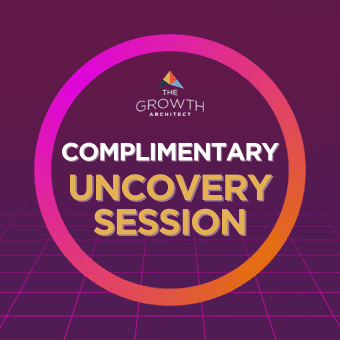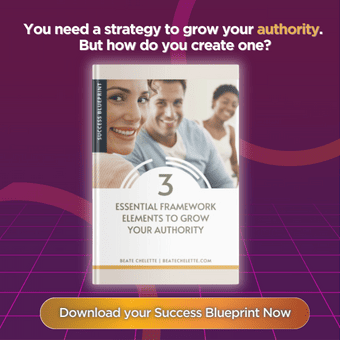The vendor was disastrous. Deadlines missed, calls not returned, work incomplete, programming sloppy, and worst of all—he didn’t even bother to watch the screencasts I recorded of the problems he needed to fix! I discovered how lackadaisical his approach was during a conference call while I was in another state to attend a funeral. Not the best time to test my patience.
He had a 100% no-questions-asked guarantee and that’s one of the reasons I hired him. He sounded like he had integrity. It went downhill from there.
As creative business owners, we inevitably find ourselves in situations where objectives are not met. In fact, life is full of these scenes. Personal relationships fail and business deals crumble.
In this case, it was a launch sequence for which I hired that vendor to write and program my CRM. I finally had to fire the guy and his team when he didn’t even realize he had missed the deadline. (I’ve officially added “missing deadlines” to my list of things that are guaranteed to drive customers away.)
Have you noticed that people start to argue when they know they are wrong? It’s easy to spot. All their sentences start with. “You did…,” or “You said…,” and perhaps there’s even the veiled threat of, “My attorney and I feel that you …”
Wait a minute, he was trying to get out of his guarantee.
I was wronged by the vendor. I must tell him. That’s the way it works, right?
Take a deep breath, Beate.
It’s easy to go off on someone, especially via email. What’s much harder is to solve the problem within ourselves first. All I wanted was to let my attorneys loose on this snake to show him who is in the right here. A guarantee is a guarantee, right?
I stopped myself.
In my other business, The Women’s Code, we use the Three Pillars: Awareness, Support, and Collaboration. The pillars apply to all people in any situation, so I am going to share them with you. Creatives especially feel the burn of dishonesty little deeper because we are a sensitive bunch who just want to be treated fairly. We can get pretty upset when we meet people who act without integrity and weasel themselves out of the right thing to do.
But to act with integrity ourselves, we must live by the Golden Rule.
Awareness asks: What is going on here? What is my part? Who do I want to be in this? We always play some part in any quarrel. But there is a bigger question: Where do I want to put my energy? Will you give your good energy to the snake or put it toward growth?
Next is support. Were you properly supported by this person? Probably not. So why then do you want to stay in contact with them? A lack of support brought this issue on in the first place. What would need to happen for you to be supported? Now that I consider things, it’s possible I wasn’t supportive of the vendor because I lost trust in him.
Then comes collaboration. Only through honest awareness and with proper support can we arrive at collaboration. Now that we know what bad collaboration looks like, how will we set up the next deal so it will be more successful?
I’ve learned that what goes around comes around. Sometimes the best position is to let things unfold. I can wait. Until then, I’ve brushed myself off and found the right team that will do the job properly.
What are some of your lessons that you learned when working with outside vendors, and other freelancers? I am curious to find out how you protect yourself and monitor their progress.





I can relate to this! I learned a lot from something very similar. I really appreciate this blog because it taught me something I had not yet learned until reading your article. The new lesson was to LET GO of the anger.
My situation was that I was hired as the expert SEO. However the person handling the website never implemented the work I detailed. Seeing this, I knuckled down, explaining reasons and requirements to the owner, getting his agreement, writing everything up in such detail that the website person had only to copy and paste the work in the proper place. Yet – nothing was done. Luckily my contract was written in such a way that the next step/s would not be taken until the first were completed. My part of the project ended, and the owner paid me what I expected for my work (which was in time because the actual procedures were never implemented).
What I learned:
When something is not being done, communications should be with all people involved – maybe the owner was unable to convey the work to the website person despite what I might think they should already know. Never assume;
Complete freelance projects as independently as possible – I could have entered the work. In this case I had not chosen to do so since the web developer was a close friend of the owners and I didn’t want to infringe on their duties;
Restructure my offers so that I can present complete packages from start to finish to alleviate any of the problems like this. Why should an owner have to know every reason for implementing SEO when I am the one advising;
Don’t be too technical – find ways to convey importance without getting into the nitty gritty details – simplify using images, infographics and blogs that can be distributed to future clients
Improve my selling pitches to show that these steps are important to the growth of the clients’ web presence. Some things cannot be menus that allow the client to pick and choose from and I obviously failed to convey their importance.
Despite all of this, when this same client contacted me a few years later for marketing work, I made the mistake of pointing out what happened in the original contract. Marketing work was definitely in the original plan after SEO work was complete. The client was honestly sorry, and I didn’t need to be emotional and drag all of that out again. I needed to let go – as your article points out. I needed to be more businesslike.
Thanks for this article! My shoulders already feel more relaxed!
Really appreciate the detail of your response Nancy. My most important take away from your comment is that it is vital to stay in control of the job from beginning to end. In your case entering the info on the website. That way you can guarantee the work ad ensure it’s finished. Otherwise you risk that the customer blames you for not completing the job.
Beate,
I’ve always made it a goal to deal with vendors face-to-face which inevitably means I use local talent 90% of the time. I look them in the eyes, shake hands and tell them quite calmly that I expect them to do what they promised.
I also let them know that they will tire of seeing my smiling face when something goes south before I will tire of coming over to their place to do deal with the issue.
That works very well for me.
On the occasions I work with talent that is not local, they have to have a lot of good reviews, I must feel good about them when we talk and they must answer my very pointed questions. This is no ironclad guarantee but it’s as good as I can get without going crazy…
Thank you for sharing your experience Michael. I hadn’t considered the issue of looking for most vendors locally. I find that talent in Los Angeles tends to charge higher. My team is all over the world, but this one brought me to my knees. Agreed, checking references and reviews is key and if they don’t have any – perhaps that should have been my sign!
This is solid advice, especially ‘letting it go’, for starters. Often times when we’re fired up, it takes someone else to remind us to take it down a few notches before we do anything else. Owning what role your energy plays in it, especially when you come from centered place, allows you to see what you didn’t (really) want to see, and learn that if you had been more aware, you may have chosen differently. It’s good self-karma, no?!
Coming from an intentional place, where you choose to work with good people that share your beliefs and want to mutually be successful, keeps the momentum going – and you’ll continue to attract like-minded talent to support your efforts that deliver every time. The others you’ll spot a mile away, or even better, they won’t get on your radar at all.
Most often I find I typically make those off-decisions one time only, staying more present and supporting myself helps me skip them all together. Thanks Beate!